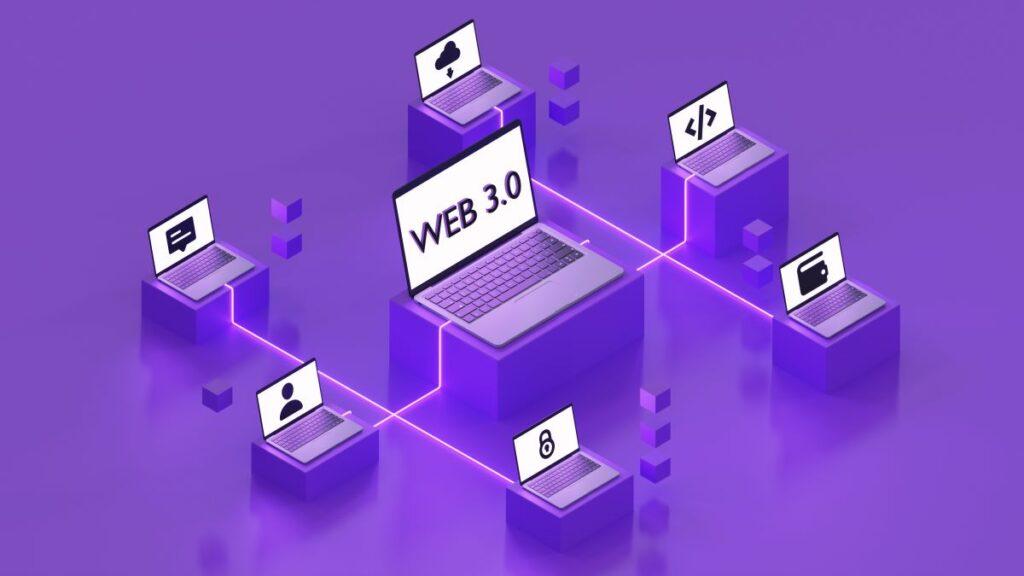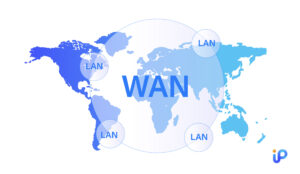6 Min Read |23 Jan 2024 | Key Words: Web 3, Cryptocurrency, IPv4 addresses,Cybersecurity, NFTs
In the current digital era, the internet’s evolution is rapidly accelerating, with Web 3 leading this transformative journey. But what exactly is Web 3? Why is it important, and how does it relate to business services? This exploration reveals the vast potential of Web 3.
Web 3 in Gaming: A Decentralized Revolution
Web 3 is revolutionizing gaming through decentralizing control over game assets and decision-making.
By integrating blockchain tech, players gain a say in game evolution, introducing ‘play-to-earn’ opportunities and transforming payment systems. This enables asset trading, in-game token exchanges, and cryptocurrency earnings during gameplay.
The fairness in Web 3 gaming is exemplified by players’ competitive ownership of digital assets, represented as non-fungible tokens (NFTs), which enhances interoperability across various gaming ecosystems.
Understanding Web 3
Web 3 is the next phase of the internet, characterized as a decentralized and user-centric ecosystem. It represents a paradigm shift from centralized Web 2, emphasizing user data ownership, privacy, and open access. Powered by blockchain and smart contracts, Web 3 aims to empower users, minimize intermediaries, enhance security, and promote transparency.

Why Web 3.0 is Beneficial for Business and Consumers
For Businesses,Web 3 provides the benefits below:
- Data Privacy: Operations can be conducted without the need for personal data, enabling anonymous connections, and securing information sharing.
- Intellectual Property Protection: Blockchain and smart contracts allow businesses to safeguard their ideas and creations, ensuring fair compensation for their work.
- Enhanced Security: By leveraging blockchain technology, businesses can enhance security measures, eliminating concerns about fake accounts or data tampering.
- Efficient Contracts: Directly enforceable smart contracts benefit businesses of all sizes by eliminating intermediaries and streamlining contract processes.
For Consumers,Web 3 offers the following advantages:
- Data Control: Consumers are empowered to share their information on their own terms, increasing control over their personal data.
- Fair Transactions: Blockchain and smart contracts ensure fair deals, ensuring that creators receive fair compensation when consumers use a service or make a purchase.
- Heightened Security: Consumers benefit from stronger security measures, reducing the risks of scams or data breaches in their transactions and interactions.
- Transparent Agreements: Smart contracts bring transparency to agreements, making deals clear and trustworthy without the need for intermediaries overseeing every aspect.
On Web 3.0, blockchain opens up diverse possibilities, such as trading art, energy, or digital assets, transferring funds, storing documents securely, or verifying authenticity. Although not all projects will succeed, some will have a significant impact on our lives, shaping a fairer and more user-focused Web 3.0 model.
Challenges Ahead
However, transitioning to Web 3 is not easy. Some challenges need to be addressed, including scalability, interoperability between different blockchain networks, regulatory compliance, and user adoption. Overcoming these obstacles is crucial for the widespread acceptance and success of Web 3.
Leveraging Web 3 for IPv4 Superhub

The IPv4 Superhub will leverage Web 3 to enhance users’ services by:
- Facilitating Secure and Transparent IP Address Transactions: IPv4 Superhub will ensure transparent and secure transactions of IP addresses by utilising blockchain. This provides a verifiable history of ownership transfers.
- Tokenized Payments for IP Address Allocation: By accepting virtual currency payments, such as cryptocurrencies, IPv4 Superhub can streamline and expedite the process of IP address allocation, making it more accessible to global clients.
- Decentralized IP Address Marketplace: With smart contracts, IPv4 Superhub can offer a platform for direct buying, selling, and leasing IP addresses among users, eliminating intermediaries.
- Enhanced Data Privacy and Security Measures: Blockchain encryption enhances data privacy and security in IP address transactions.
Conclusion
The emergence of We 3 presents immense opportunities for innovation and disruption in various industries, including the IP address sector. By emb racing Web 3 principles and technologies, IPv4 Superhub can revolutionize IP address management and trading, ensuring enhanced transparency, security, and accessibility in the digital landscape.
In the future, this integration of Web 3 principles signifies a move towards a decentralized and user-centric Internet infrastructure.




